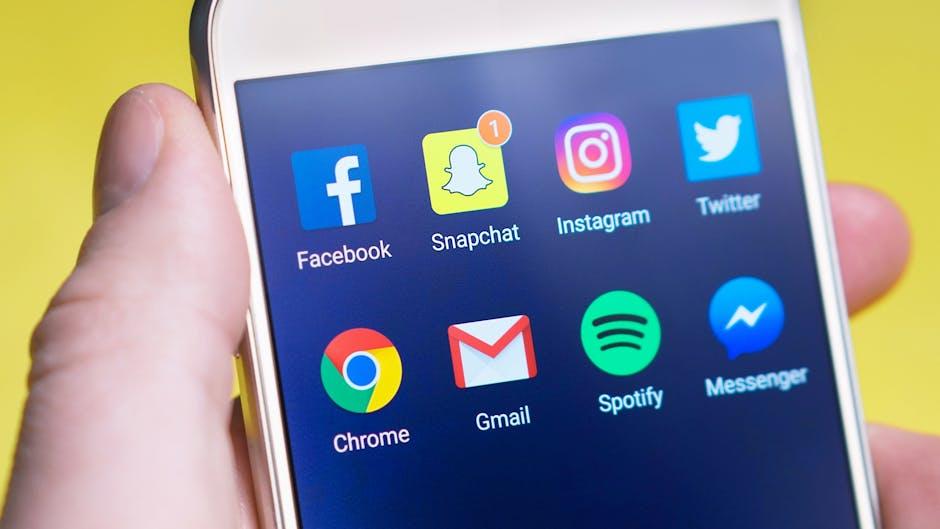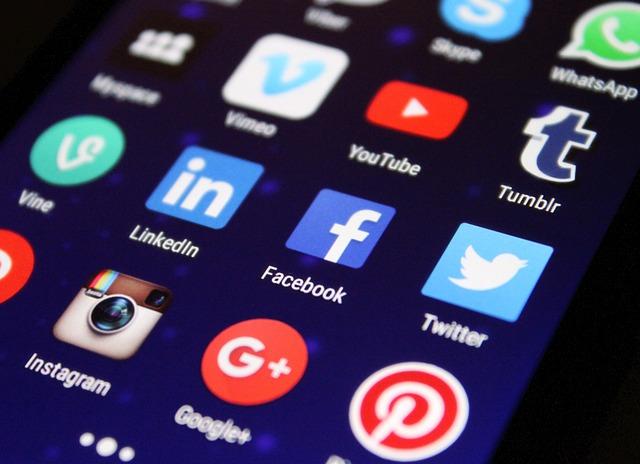In an era where digital landscapes are as familiar as the physical world, social media stands as both a vibrant canvas and a complex tapestry of human interaction. Its omnipresence in our lives often draws criticism, particularly regarding its impact on mental health. Yet, amid the noise and the endless scroll, a quieter narrative unfolds—one where social media emerges as a potential ally in the quest for mental well-being. This article explores the nuanced dimensions of social media’s influence, seeking to uncover the ways in which these platforms might not only connect us, but also nurture our minds. As we delve into this digital paradox, we invite you to consider: Can social media truly be beneficial for mental health, or is it merely a double-edged sword in disguise?
Exploring the Positive Impact of Online Communities on Mental Well-being
In the digital age, online communities have emerged as sanctuaries for individuals seeking solace, understanding, and companionship. These virtual spaces can offer a plethora of benefits that contribute positively to mental well-being. One of the significant advantages is the ability to connect with others who share similar experiences or challenges. This connection can foster a sense of belonging and reduce feelings of isolation. Additionally, members often exchange valuable coping strategies and emotional support, which can be incredibly empowering.
Key Benefits of Online Communities:
- Access to diverse perspectives and experiences
- Opportunities for peer support and encouragement
- Availability of resources and information on mental health
- Space for self-expression and sharing personal stories
- Fostering empathy and understanding across different backgrounds
These platforms, when used mindfully, can be a force for good, transforming the way individuals engage with their mental health journey. As users navigate these communities, they often discover a newfound resilience and a deeper connection to themselves and others.

Harnessing the Power of Digital Connections for Emotional Support
In a world where digital interactions are seamlessly woven into the fabric of daily life, online platforms have emerged as a sanctuary for emotional solace. Social media can serve as a lifeline, connecting individuals with a tapestry of supportive communities and offering a space where they can voice their thoughts and feelings without judgment. Through these platforms, people find the courage to share their experiences and challenges, creating a ripple effect of empathy and understanding that transcends geographical boundaries.
- Peer Support: Online groups and forums allow individuals to connect with others who share similar struggles, fostering a sense of belonging and reducing feelings of isolation.
- Access to Resources: Digital platforms often provide access to mental health resources, including articles, webinars, and expert advice, empowering users with knowledge and tools for self-care.
- Anonymity and Safety: The option to remain anonymous can encourage people to open up about sensitive issues they might not feel comfortable discussing in person.

Balancing Screen Time: Strategies for Healthy Social Media Use
In the digital age, where social media platforms serve as a primary means of communication and information sharing, finding a harmonious balance in screen time is essential for mental well-being. While excessive use can lead to negative effects such as anxiety and depression, strategic engagement can unlock potential benefits. Setting boundaries is crucial; consider implementing time limits for daily usage or designating specific times of the day for checking notifications. This conscious regulation can prevent social media from becoming an overwhelming presence in your life.
- Curate your feed: Follow accounts that inspire and uplift rather than those that incite stress or negativity.
- Engage mindfully: Focus on meaningful interactions rather than mindless scrolling.
- Diversify activities: Balance screen time with offline activities like reading, exercising, or spending time outdoors.
By employing these strategies, users can harness the positive aspects of social media, transforming it into a tool that supports mental health rather than detracts from it. Through intentional use, individuals can cultivate a digital environment that contributes positively to their overall well-being.

Practical Tips for Curating a Mental Health-Friendly Social Media Feed
To harness the potential benefits of social media for mental well-being, it’s essential to thoughtfully curate your feed. Begin by following accounts that inspire positivity and promote mental health awareness. These can include mental health advocates, psychologists sharing insights, or communities focused on self-care. It’s equally important to unfollow or mute accounts that trigger stress or negative emotions. This might mean distancing yourself from certain news outlets or individuals who frequently post distressing content.
- Engage mindfully: Interact with content that adds value to your day and encourages constructive conversations.
- Set boundaries: Allocate specific times for social media use to avoid mindless scrolling.
- Explore diverse perspectives: Follow a variety of voices to cultivate a balanced view and reduce echo chambers.
Additionally, take advantage of features that enhance mental health. Many platforms offer tools to manage screen time and notifications, which can help in maintaining a healthy balance between online and offline life. By creating a supportive digital environment, social media can transform from a source of stress into a space for growth and community.








